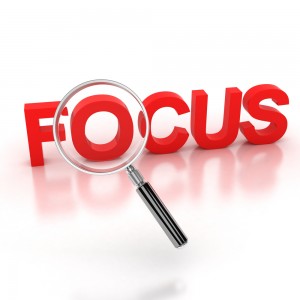My biggest challenge . . .
The biggest challenge I face is the overwhelming amount of ‘stuff’ available. By this I mean conferences, professional learning opportunities, networks, social media, and so  on. This bombardment began about two years ago when I became a part time district technology curriculum coordinator. I advocated for part time for two reasons: (1) I felt completely leaving the classroom would limit my ability to fully explore technology integration in the field (and I love teaching) and (2) accepting the job part time gave me a teammate to collaborate with. However, with this posting, came numerous learning opportunities. In the last two years, I have attended the following (while teaching .5 FTE):
on. This bombardment began about two years ago when I became a part time district technology curriculum coordinator. I advocated for part time for two reasons: (1) I felt completely leaving the classroom would limit my ability to fully explore technology integration in the field (and I love teaching) and (2) accepting the job part time gave me a teammate to collaborate with. However, with this posting, came numerous learning opportunities. In the last two years, I have attended the following (while teaching .5 FTE):
INQUIRY
2014: Technology for Inquiry Conference / Centre for Educational Leadership and  Policy (CSELP), Vancouver, BC
Policy (CSELP), Vancouver, BC
2013-2014: Quality Teaching and Learning (QTL) Inquiry Cohort
2013: Creating and Leading Cultures of Inquiry, Bruce Wellman
2013: Technology for Inquiry Conference / Centre for Educational Leadership and Policy (CSELP), Vancouver, BC
Leadership & Mentorship
2013: Large Project Management / UVic Digital Humanities Institute (Dr. Lynne Siemens-two day workshop)
2013: Mentoring Matters: Learning Focused Relationships (Bruce Wellman – two day workshop)
21st Century / Personalized Learning
2013: International Society for Technology in Education (ISTE) Conference, San Antonio, Texas (five day conference)
2013: IT4K12 Conference on “Technology Enabling Innovation & Learning” / Educational Resource Acquisition Consortium (ERAC), Vancouver, BC, (two day conference)
2013: ConnectEd Canada at the Calgary Science School, Calgary, AB (three day conference)
2013: “Enacting 21st Century School and University Research Partnerships” UVic Personalized Learning 21 (PL21) Working Group, Victoria, BC
2013: K-12 Transformation and Curriculum Directions (Maureen Dockendorf & Rod Allen)
2012: Computer Using Educators of BC (CUE BC) Conference, Vancouver, BC
2012: International Society for Technology in Education (ISTE) Conference, San Diego, California (five day conference)
2012: Dialogue 2012: A joint initiative of UVic’s Faculty of Education, BC’s Ministry of Education, School Districts 61, 62, 63, & 64 and John Abbott. Victoria, BC
Diversity
2012: Kurzweil 3000 (two sessions)
Restitution
2012: Restitution I (Judy Anderson-one day workshop)
2012: Restitution III (Diane Gossen-one day workshop)
Curriculum & Instruction
2013: British Columbia Teachers of English Language Arts (BCTELA) Conference (2 days)
2012-2013: Canadian Literature for Social Justice Inquiry Project (UVic)
Overwhelmed . . .
In addition, I finished my Masters (with a focus on Digital Literacy) and now have embarked on my Teacher-Librarianship Diploma. There is so much to learn my brain  feels as if it’s bleeding half the time and just when I think I have grasped a concept it evolves, expands or even completely morphs into something else!
feels as if it’s bleeding half the time and just when I think I have grasped a concept it evolves, expands or even completely morphs into something else!
So, as mentioned, I struggle with feeling overwhelmed. My latest strategy is to attempt to slow down and accept I cannot learn everything at once, that I need to focus on specific goals, such as incorporating inquiry into my class. Then, I actually have to give myself the time and space to learn, mess up and reflect that I try so hard to give my students. I’ve come to realize how unforgiving I can be with myself as a learner. As well, I am beginning to accept that I cannot participate in all the opportunities that come my way (at least not well) and that I will need to say no (which still kills me).
What to do . . .
In addition to all the resources available around me (as outlined in the above list), my  main resource is my teammate Dawn Anderson and my colleagues. Nothing motivates, inspires and sustains me more than being able to collaborate with fellow teachers experimenting in similar areas. The stories, humor, successes and muck ups remind me that I’m a learner too and that there is always support to be had.
main resource is my teammate Dawn Anderson and my colleagues. Nothing motivates, inspires and sustains me more than being able to collaborate with fellow teachers experimenting in similar areas. The stories, humor, successes and muck ups remind me that I’m a learner too and that there is always support to be had.
Social media networks are a challenge for me as it seems every conference or workshop I go to attempts to create PLN that they want to sustain beyond the session. Although an admirable goal, when you attend as many of these as I do, participating sustainably in so main networks is unrealistic. Again, this brings me to having only one or two main objectives that would then allow me to choose one or two networks that supported these objectives.
Educators and professionals are connecting and sharing their learning through conferences, district initiatives, informally in schools and, of course, through social media. A specific network that is just emerging is the BC EdTech Mentorship Network which I hope will provide a “one stop shop” or portal if you will for the busy teacher looking for support around technology integration. For example, the network provides “how to” videos on incorporating new technology:
The main thing I think I can do during this class and after it is over to maintain my  connections and networks and to further develop my knowledge, experience and skills would be to slow down, focus on a few specific goals and to choose networks, resources and learning opportunities that serve those specific objectives rather than my current scatter gun approach. I believe I’ve accomplished breadth; now I aim for depth.
connections and networks and to further develop my knowledge, experience and skills would be to slow down, focus on a few specific goals and to choose networks, resources and learning opportunities that serve those specific objectives rather than my current scatter gun approach. I believe I’ve accomplished breadth; now I aim for depth.